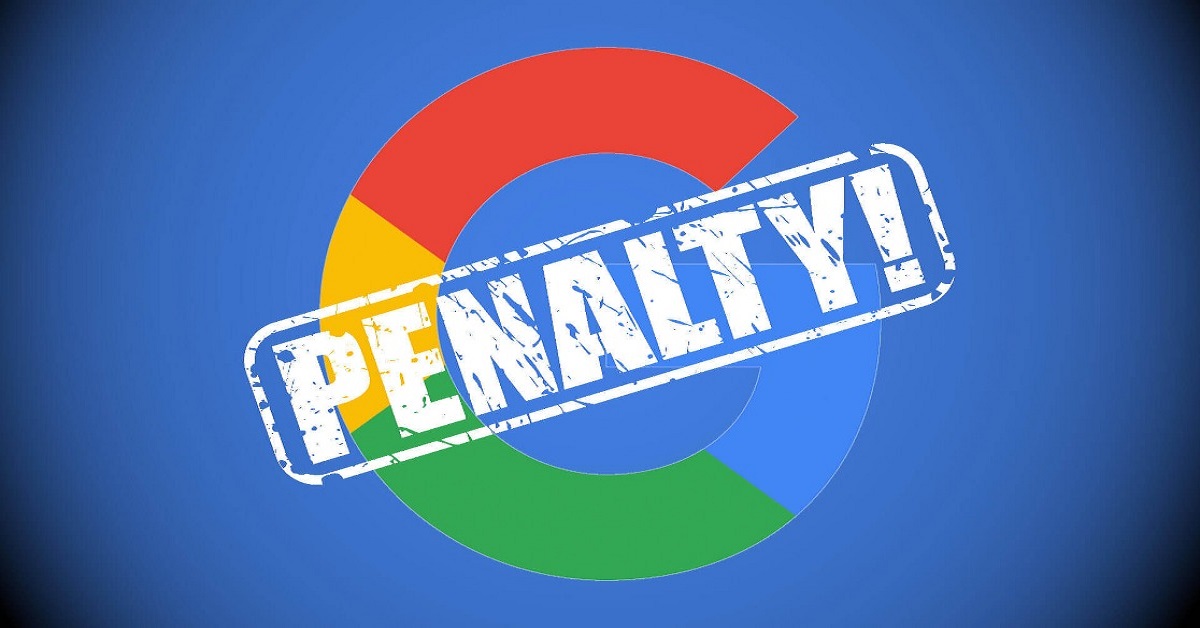In the rapidly evolving world of cryptocurrencies and blockchain technology, establishing a strong online presence is crucial. Search engine optimization (SEO) plays a pivotal role in achieving this goal, with link building being a key component. However, the crypto niche faces unique challenges when it comes to link building, as search engines like Google apply stringent scrutiny to prevent manipulation and ensure the delivery of high-quality, relevant content to users.
This article aims to educate crypto project teams, including founders, SEO managers, and Web3 marketers, on the types of backlinks that can lead to Google penalties, particularly in the crypto niche. It also provides best practices for building safe, sustainable, high-quality backlinks, demonstrating CryptoSEO.it.com’s expertise in ethical, white-hat link building for Web3 brands.
Why Crypto Websites Are Under More Scrutiny from Google
The cryptocurrency and blockchain industry operates in a highly dynamic, speculative, and sometimes controversial space. Because of this, crypto websites are under far more scrutiny from Google’s algorithms and manual reviewers than typical websites. Understanding why this happens is key for any crypto SEO manager or Web3 project founder to avoid missteps that could trigger a Google penalty crypto SEO issue.
1. High Risk of Misinformation and Scams
Crypto has long been associated with scams, pump-and-dump schemes, rug pulls, phishing attacks, and misleading investment promises. Google’s primary responsibility is to protect its users from harmful or deceptive content. As a result, crypto domains are often treated with skepticism by default until they prove otherwise through strong E-E-A-T (Experience, Expertise, Authoritativeness, Trustworthiness) signals.
2. Financial Content = YMYL (Your Money or Your Life)
Google categorizes cryptocurrency content under YMYL (Your Money or Your Life). These are websites that can potentially impact a user’s financial stability or safety. YMYL pages face the highest standards of quality evaluation, especially in areas like:
- Cryptocurrency exchanges
- Trading platforms
- Token sales and ICOs
- Investment advisory content
- DeFi and NFT platforms
Even small inaccuracies or questionable links can flag crypto websites for manual or algorithmic penalties.
3. Aggressive SEO Manipulation in the Crypto Sector
Because of the highly competitive nature of blockchain and Web3 industries, many projects and marketing agencies have historically tried to shortcut rankings through aggressive, often black-hat crypto link building strategies. Common manipulative tactics include:
- Private Blog Networks (PBNs)
- Mass link purchasing
- Link exchanges between unrelated sites
- Automated comment spam
Google now actively targets these schemes, especially within the crypto industry, making safe link building crypto not just advisable but essential.
4. International Regulatory Uncertainty
The crypto industry operates across jurisdictions with drastically different regulations. Some countries ban or tightly control crypto activities, while others encourage innovation. Google’s algorithms, combined with local legal frameworks, often treat crypto domains cautiously to prevent surfacing potentially unlawful or unlicensed financial advice to local users.
5. Google’s Increasing Focus on E-E-A-T Signals

In recent algorithm updates (such as the Helpful Content Update and Spam Updates of 2023-2024), Google has reinforced the value of credible sources. For crypto websites, this means:
- Citing trustworthy publications
- Transparent authorship and team pages
- Secure HTTPS hosting
- Clean backlink profiles from white hat backlinks for Web3
Simply put, crypto websites must go the extra mile to prove their legitimacy.
6. Volatility of Crypto Markets Impacts Reputation
The extreme volatility of crypto prices and the regular media attention around hacks, exchange collapses, or legal actions also make Google tread carefully when ranking crypto-related pages. Any site that hints at shady practices risks being de-indexed altogether.
Summary: What It Means for Crypto SEO
- You must avoid even the appearance of manipulative link building.
- Prioritize building backlinks through trusted crypto-native sources.
- Keep your website’s E-E-A-T profile strong at all times.
The stakes are higher in crypto SEO than in almost any other industry. But with an ethical and well-planned strategy, you can succeed safely and sustainably.
Understanding Link Spam, Black-Hat Tactics, and Toxic Domains
Link building is a critical aspect of SEO, but not all backlinks are beneficial. Engaging in manipulative link-building practices can lead to severe penalties from search engines.
Link Spam
Link spam refers to the creation of backlinks with the intent to manipulate a website’s ranking in search engine results. This includes practices like excessive link exchanges, using automated programs to generate links, and placing links on irrelevant or low-quality websites.
Black-Hat Tactics
Black-hat SEO tactics are unethical practices that violate search engine guidelines. These include:
- Paid Links: Purchasing backlinks from other websites without proper disclosure.
- Private Blog Networks (PBNs): Creating a network of websites solely to build backlinks to a main site.
- Cloaking: Showing different content to search engines and users.
Engaging in these tactics can result in penalties, including de-indexing from search results.
Toxic Domains
Toxic domains are websites that have been penalized or are considered untrustworthy by search engines. Backlinks from such domains can harm your website’s SEO performance. It’s crucial to regularly audit your backlink profile to identify and disavow links from toxic domains.
Safe Backlink Strategies for Crypto Companies
Crypto companies must understand that safe link building crypto is about quality over quantity. One high-authority, relevant backlink can outweigh hundreds of low-quality links. Ethical, sustainable strategies not only improve rankings but also shield your site from potential Google penalty crypto SEO risks. Below are the most effective white-hat backlink tactics for crypto businesses.
1. Guest Posting on Reputable Crypto and Finance Blogs
Guest posting remains one of the most reliable and scalable crypto link building strategies when done correctly. The key is to avoid spammy “guest post farms” and focus on building relationships with established, authoritative sites in the crypto, fintech, and blockchain space.
Best practices:
- Target well-known industry blogs, news outlets, or educational platforms.
- Ensure your articles provide genuine value, insights, or original research.
- Use branded anchor texts and avoid over-optimized keyword anchors.
- Include a short bio linking to your homepage, not every internal page.
Example: A DeFi protocol sharing an expert article on wallet security with CoinTelegraph or Decrypt is seen as legitimate thought leadership, not manipulative linking.
2. Thought Leadership and Content Marketing
Google favors websites that are perceived as industry authorities. By producing insightful, unique content, crypto founders and marketers can attract white hat backlinks for Web3 naturally.
How to execute:
- Publish detailed tutorials, tokenomics explanations, and security guides.
- Share transparent company updates, audits, or roadmaps.
- Host AMAs (Ask Me Anything) or webinars and have reputable sites link back to them.
- Create visual content like infographics, charts, and whitepapers (which often get cited by others).
Tip: Avoid thin content. Quality, not volume, attracts natural backlinks.
3. Digital PR and Media Outreach
Digital PR is highly effective for crypto brands wanting to build defensible backlink profiles. This involves securing media coverage, interviews, and editorial mentions in respected publications.
Proven tactics:
- Announce major company milestones (new partnerships, funding rounds, product launches).
- Work with crypto PR agencies that have connections with credible journalists and publications.
- Develop story pitches that tie into larger industry trends.
Why this works: A mention (and backlink) from top-tier media such as Forbes, Bloomberg, or Yahoo Finance sends strong trust signals to Google.
4. Crypto-Native Directories and Communities
Listing your project in reputable crypto directories can provide high-quality, niche-relevant backlinks. However, avoid low-quality directory farms that exist purely for SEO manipulation.
Safe examples:
- CoinGecko
- CoinMarketCap
- Messari
- DappRadar
- DefiLlama
Other options:
- Crypto forums (like BitcoinTalk)
- Web3 developer hubs
- DAO and DeFi community listings
Reminder: Always vet these directories using domain authority and community reputation to avoid linking from toxic domains.
5. Partnerships, Sponsorships, and Co-Marketing
Building relationships within the crypto ecosystem often leads to natural link opportunities.
Approaches:
- Partner with other blockchain protocols, wallets, or exchanges.
- Co-author blog posts, research reports, or technical papers.
- Sponsor industry events, conferences, or hackathons and get a backlink from their official site.
Benefits: These backlinks are highly contextual and provide both SEO value and brand recognition.
6. Influencer Collaborations (Carefully Managed)
Crypto influencers can help promote projects and generate backlinks, but this must be done cautiously to avoid breaking Google’s rules on paid links.
Best practices:
- Focus on influencer collaborations for content creation, not just link placement.
- Disclose sponsorships as per FTC and Google guidelines.
- Never buy backlinks directly from influencers’ blogs.
7. Avoiding Automation and Link Schemes
Google’s algorithms easily detect unnatural link patterns created by bots or link exchange schemes.
Golden rules:
- Never use automated software for backlink creation.
- Avoid reciprocal link trades with unrelated or low-authority websites.
- Do not participate in private blog networks (PBNs) disguised as crypto news sites.
Final Takeaway on Safe Backlinking
All crypto link-building efforts should aim to satisfy these three criteria:
- Relevance: The link must come from a site that is topically related to crypto, blockchain, finance, or technology.
- Authority: The linking site should have proven authority and trust signals.
- Natural Placement: The link must appear as part of genuine editorial content, not forced into comment sections, footers, or sidebar widgets.
Following these principles positions your project for long-term SEO success while keeping you well clear of Google penalty crypto SEO issues.
How to Vet Backlink Opportunities
Before pursuing backlink opportunities, assess the following factors to ensure they align with best practices:
1. Domain Authority (DA) and Domain Rating (DR)
Check the DA (Moz) or DR (Ahrefs) of a site. High scores (30+ for niche sites, 50+ for major sites) signal strong backlink equity. Avoid low DA/DR sites that may be part of link schemes.
2. Organic Traffic Levels
Use tools like SEMrush or SimilarWeb to assess steady, real user traffic. Low or fluctuating traffic may indicate penalties or poor-quality sites. Consistent traffic from relevant users boosts backlink value.

3. Relevance to Crypto and Web3
Prioritize sites focused on crypto, blockchain, NFTs, DeFi, or fintech. Niche-relevant links send stronger trust signals to Google. Avoid backlinks from unrelated industries.
4. Backlink Profile Cleanliness
Analyze the site’s backlink history with Ahrefs or Moz. Avoid domains with a high percentage of toxic, spammy, or irrelevant links. A clean backlink profile protects you from penalties.
5. Site Reputation and Branding
Choose sites with strong community presence, known crypto partnerships, and transparent ownership. Reputable crypto publishers are safer than anonymous or ad-heavy sites. Avoid poorly branded, suspicious domains.
6. Indexing and Crawlability
Confirm the site is indexed by Google (site:domain.com). Deindexed or partially indexed sites offer no SEO value. Stick to sites with healthy visibility in search results.
7. Link Placement and Editorial Quality
Aim for contextual links inside high-quality articles. Avoid links in sidebars, footers, or comments. Well-written, original content with your link naturally embedded passes the most SEO value.
8. Compliance With Google Guidelines
Ensure links comply with Google Search Essentials: no paid links without rel=”sponsored”, no link schemes, no manipulative exchanges. Ethical practices avoid Google penalty crypto SEO risks.
Signs Your Site May Be at Risk
Monitoring your website’s performance can help identify potential SEO issues early:
Sudden Drops in Rankings
A significant and unexplained drop in search engine rankings may indicate a penalty or algorithm update affecting your site.
Manual Actions
Check Google Search Console for any manual action notifications. These indicate that a human reviewer has determined your site violates Google’s guidelines.
Indexing Issues
If your pages are not being indexed or are disappearing from search results, it could be due to technical issues or penalties. Regularly monitor your site’s indexing status.
How CryptoSEO.it.com Helps Crypto Brands Build Defensible Backlink Profiles
At CryptoSEO.it.com, we specialize in ethical, white-hat link-building strategies tailored for the crypto industry. Our services include:
- Comprehensive Backlink Audits: Identifying and disavowing toxic backlinks to protect your site’s SEO health.
- Strategic Link Building: Focusing on high-quality, relevant backlinks through guest posting, digital PR, and partnerships with authoritative crypto websites.
- Continuous Monitoring: Regularly assessing your backlink profile to ensure compliance with search engine guidelines and adapting strategies as needed.
Our team has successfully collaborated with reputable Web3 companies, helping them achieve sustainable SEO growth while avoiding penalties.
Navigating the complexities of SEO in the crypto industry requires a strategic and ethical approach to link building. By understanding the risks associated with manipulative practices and focusing on building high-quality, relevant backlinks, crypto companies can enhance their online visibility and credibility.
At CryptoSEO.it.com, we are committed to helping crypto brands build defensible backlink profiles that withstand algorithm updates and maintain strong search engine rankings.
Ready to safeguard your crypto project’s SEO performance? Contact us today for a comprehensive link profile review or to schedule a strategy call focused on penalty-safe link building.




